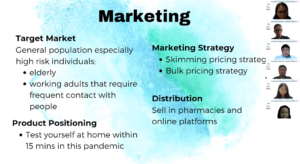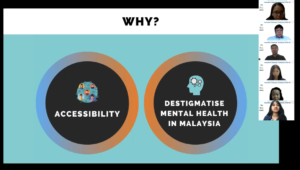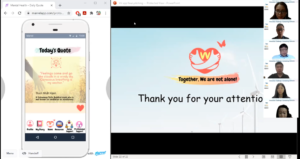[fusion_builder_container hundred_percent=”no” equal_height_columns=”no” menu_anchor=”” hide_on_mobile=”small-visibility,medium-visibility,large-visibility” class=”” id=”” background_color=”” background_image=”” background_position=”center center” background_repeat=”no-repeat” fade=”no” background_parallax=”none” parallax_speed=”0.3″ video_mp4=”” video_webm=”” video_ogv=”” video_url=”” video_aspect_ratio=”16:9″ video_loop=”yes” video_mute=”yes” overlay_color=”” overlay_opacity=”0.5″ video_preview_image=”” border_size=”” border_color=”” border_style=”solid” padding_top=”” padding_bottom=”” padding_left=”” padding_right=””][fusion_builder_row][fusion_builder_column type=”1_1″ layout=”1_1″ background_position=”left top” background_color=”” border_size=”” border_color=”” border_style=”solid” border_position=”all” spacing=”yes” background_image=”” background_repeat=”no-repeat” padding=”” margin_top=”0px” margin_bottom=”0px” class=”” id=”” animation_type=”” animation_speed=”0.3″ animation_direction=”left” hide_on_mobile=”small-visibility,medium-visibility,large-visibility” center_content=”no” last=”no” min_height=”” hover_type=”none” link=””][fusion_text] Novel challenges require novel solutions. To address challenges by the COVID-19 pandemic, IMU students and scientists hold virtual hackathons to solve problems that arise from the virus and its effects on society. The World Health Organization (WHO) has declared the outbreak of the coronavirus disease 2019 (COVID-19) a pandemic in March 2020. As scientists and public health experts rush to find solutions to contain the spread, existing and emerging technologies are proving to be valuable. In fact, governments and healthcare facilities have increasingly turned to technology to help manage the outbreak. The rapid spread of COVID-19 has sparked alarm worldwide. Many countries are grappling with the rise in confirmed cases. It is urgent and crucial for us to discover ways to use technology to contain the outbreak and manage future public health emergencies. Launched on 1 October 2020, the Research Hackathon themed “Innovation Challenge: Combating Covid-19” was organised by the IMU Scholars and the Institute for Research, Development and Innovation (IRDI) to encourage creative problem solvers within the IMU community to contribute in fighting the COVID-19 crisis and beyond by developing proof-of-concept solutions to manage the country’s COVID-19 challenges. The hackathon saw this week’s finals (12 December 2020) come to a close, as three finalists battled it out for the final pitching session. The final jury consisted of representatives from the organisers, experts from various fields and supporting partners from industries. After a rigorous and stringent selection process, the jury selected the following winners: Category 1 for ‘Providing Mental Health Support’ [/fusion_text][fusion_table]
| Project Name | Team Members | Description |
|---|---|---|
| Mind Sejahtera | Haziqah Packirgani, Yuveisya Krishnamoorthi, Shareena Syaira Shaari, and Alexius Cheang (Mentor) | The project was designed to address the mental health and psychosocial challenges faced by Malaysians every day during the pandemic by creating a mobile app that can be integrated into the existing MySejahtera app to offer users a set of tools and techniques to better understand their mood and notice patterns in behaviour. With the tool, it is hoped that Malaysian can become more self-aware and improve mental wellbeing during and beyond the pandemic crisis. This Hackathon has been a great learning experience on the outside world to the team. Yuveisya highlighted that the hackathon is a stepping stone for the team who are future mental health professionals by creating a platform where they are given the opportunity to transform ideas and visions into reality. As remarked by Haziqah, the team entered the competition with just a roll of thread in their hands but left with a yard of fabric weaved from knowledge and affection. Besides, Shareena has described her joy as so surreal when what seemed like a small seed of idea in the beginning as they went in with zero expectations has now blossomed into something way beyond their expectations. More than the award itself, the biggest award for them was having the opportunity to realise their small ideas which was Mind Sejahtera for the greater benefit of the society. The team would like to express their utmost gratitude to Alex for being such an amazing mentor as well as to all the support they had received throughout the competition and truly, without which they could not have made it this far. |
| With VV, Together, We are not alone! | Tiong Shao Qin, Khoo Jia Xin, Raxshanaa a/p N.Mohgan, and Dr Manisha Pandey (Mentor) | Articles tell us what to do, but apps help lead us and remind us to practice self-care every day. This project aims to develop a useful mental health wellness apps by integrating good educational articles, advice, diary taking, peers forum, and connecting users to healthcare professionals anytime and anywhere. As penned down by Shao Qin, this Research Hackathon has provided a platform for them as students to discover, express, and pitch their innovative ideas on how students could be a part of and contribute to the community during this pandemic. While having the opportunity to work together amongst the teammates and learn from each other, the team was also grateful to their wonderful supervisor, Dr Manisha for guiding them throughout the competition. |
[/fusion_table][fusion_text] 

 Category 2 for ‘Predict, Prevent, and Prepare’ [/fusion_text][fusion_table]
Category 2 for ‘Predict, Prevent, and Prepare’ [/fusion_text][fusion_table]
| Project Name | Team Members | Description |
|---|---|---|
| Test yourself at home in this pandemic | Gan Hong May, Quek Jia Yee, and Dr Hira Choudhury (Mentor) | During the first few months of the coronaviru s pandemic, COVID-19 tests were in extremely short supply. You needed a doctor’s orders to get tested, and to get those orders, you had to meet specific criteria, such as having a fever and showing other COVID-19 symptoms. Wouldn’t it be good if you can do your test at home, without the painful nasopharyngeal swab, but with a few drop of your saliva. This was the idea of the team – to design a new fluidic system that could increase the sensitivity and specificity of the existing home test kits via nanotechnology. |
[/fusion_table][fusion_text] All the 3 winning teams received an e-Certificate, a RM 500 cash prize, and a RM 20,000 research grant to further their creative ideas. The winners of the ‘Providing Mental Health Support’ category will also have the opportunity to work with app developer to learn coding and complex data processing solutions.
A hackathon is an enabler: it gets the ball rolling. It certainly doesn’t end here. This is just the beginning of a journey!
[/fusion_text][/fusion_builder_column][/fusion_builder_row][/fusion_builder_container]


No approved comments.